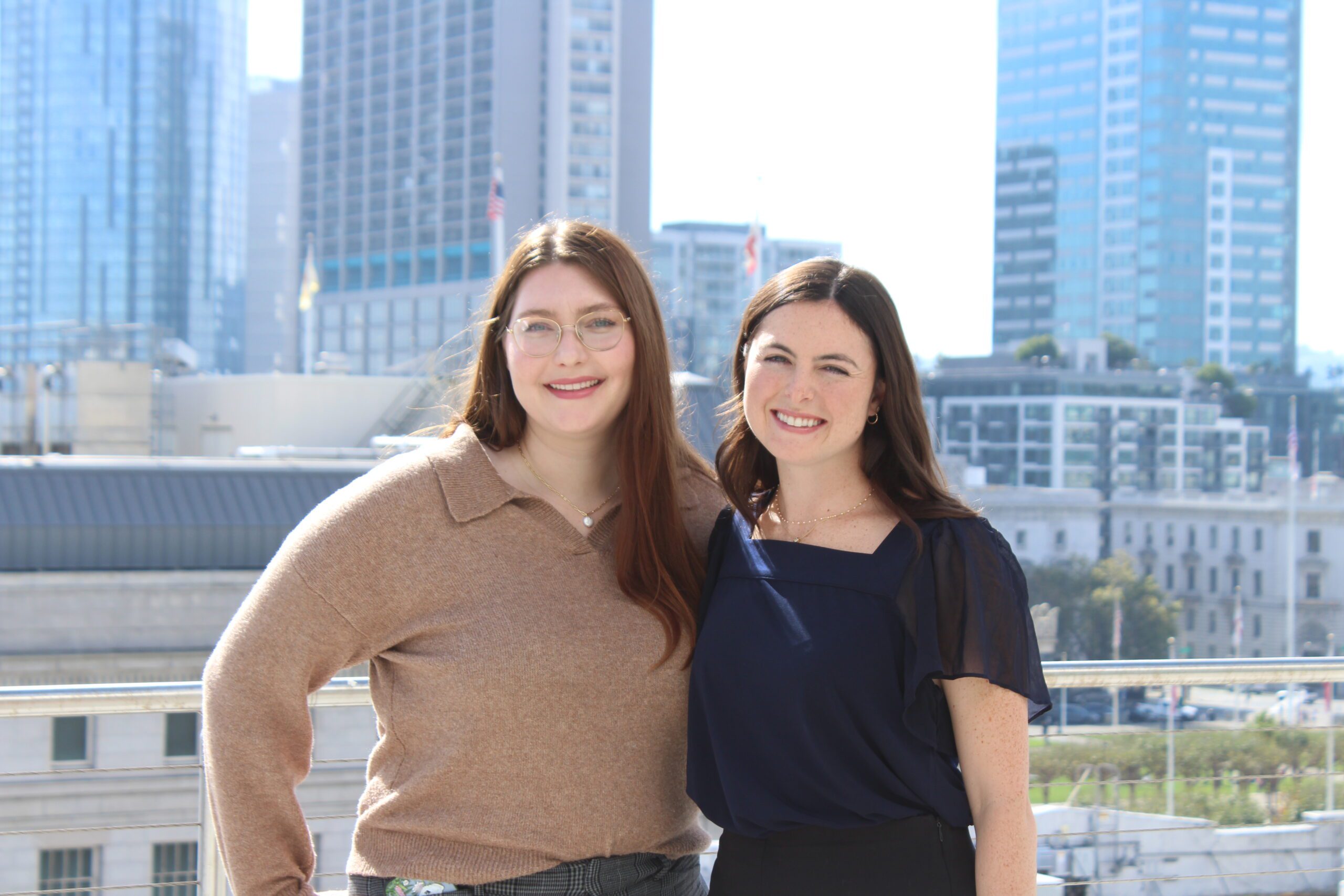Journal on Gender & Justice Gives Voice to Outsider Legal Perspectives

Mackenzie Murphy ’24 and Madeline Frank ’24 are co-editors-in-chief of the UC Law SF Journal on Gender and Justice.
Mackenzie Murphy ’24 and Madeline Frank ’24 want to shine a light on issues often excluded from mainstream discussions in legal academia. That’s why they decided to serve as co-editors-in-chief of the UC Law SF Journal on Gender and Justice.
Founded in 1989 and previously known as the Women’s Law Journal, the publication offers fresh perspectives on cutting-edge issues that most law journals tend to ignore or avoid—topics such as gender issues, disability rights, American Indian law, immigration issues, and racial justice.
“The journal’s mission is to uplift voices normally outside the scope of legal scholarship, and that really resonated with me,” Murphy said. “I wanted to be a part of putting out these types of articles into the academic world.”
The journal, which releases issues each fall and spring, publishes more than scholarly articles and legal analyses. It also features literature, poems, book reviews, personal essays, and original artwork.
“It shows that we value artistic expression and that you can have a voice through artistic expression,” Frank said.
As the journal’s co-editors-in-chief, Murphy and Frank review submissions, decide what will be accepted, set publication schedules, work with authors and editors, and organize an annual symposium on a new and emerging legal topic.
This year’s symposium addressed “adultification bias,” in which Black children are often treated as much older than they are in education, legal, and medical systems. The topic is based on research co-authored by UC Law SF Professor Thalia González, who also serves as co-director of the Center for Racial and Economic Justice at UC Law SF.
“The journal lends itself to areas of the law that are not as highlighted through our basic legal education,” Frank said. “It’s a wide, encompassing group of issues that our journal can touch on, and these are all issues that I’m passionate about.”
Frank grew up in Orange County and studied political science and public policy at UC Berkeley. She said she always dreamed of attending law school and chose UC Law SF because she liked its strong sense of community and potential for collaborations.
“You get all the benefits of a smaller community but at a larger scale, with different centers putting on events and more opportunities to collaborate with professors and peers,” she said.
Frank said she is interested in family law and helping survivors of domestic violence. After graduating this May, she plans to do a post-bar clerkship with the San Mateo County Superior Court, where she expects to be placed with a family law judge.
Murphy grew up in San Diego and studied literature at California State University San Marcos. An undergraduate class on juvenile delinquency sparked her interest in criminal justice.
In law school, she said she gravitated toward criminal appeals because she enjoys research and writing. She has externed with a California appeals court judge and an organization that provides representation in appeals for criminal defendants who can’t afford private counsel.
“Our criminal justice system only works when both sides get a fair trial with strong representation, regardless of what someone did or didn’t do,” she said.
The journal also enhances the student experience through fundraisers and community-building events, including trivia nights, social outings, and networking events with other journals. This year, the journal started connecting with past journal editors and contributors through an alumni newsletter.
“I think a journal is a great way to get involved,” Frank said. “There are great leadership opportunities, and you learn important time management skills. I’ve enjoyed it, made a lot of friends, and would suggest it to anyone.”